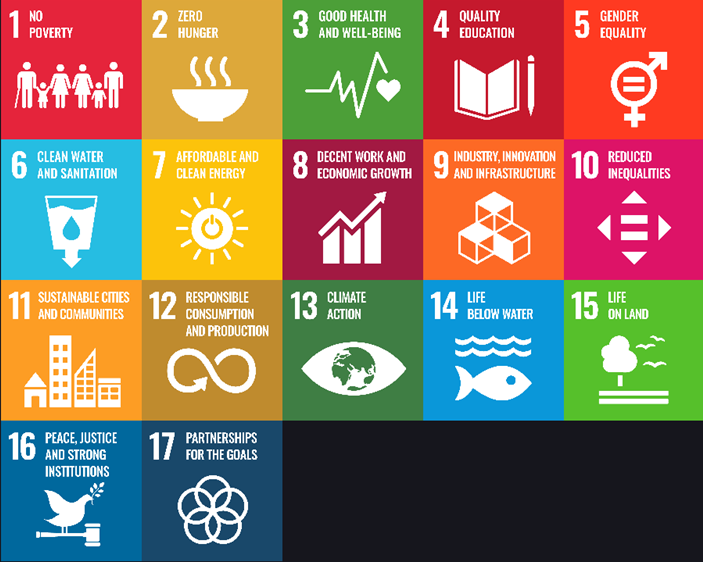Dr Daniel Norton
Lecturer in Economics
J.E. Cairnes School of Business and Economics, University of Galway

Daniel is an environmental and marine economist who has previously worked at the Marine Institute, the University of Limerick and Atlantic Technological University. His research interests and activities are focused on measurement of ecosystem services from both terrestrial and marine ecosystem and valuation of same and the incorporation of their values into natural capital accounting.
Daniel's work contributes to these SDGs
Daniel is a member of SEMRU and has worked on a number of marine related research work including the EU INTERREG Atlantic Area funded MOSES project focused on sustainable growth of the EU's Atlantic maritime economy and the EPA funded VIBES project assessing Ireland's marine ecosystem services. He has also published work on the valuing the benefits of the MSFD .
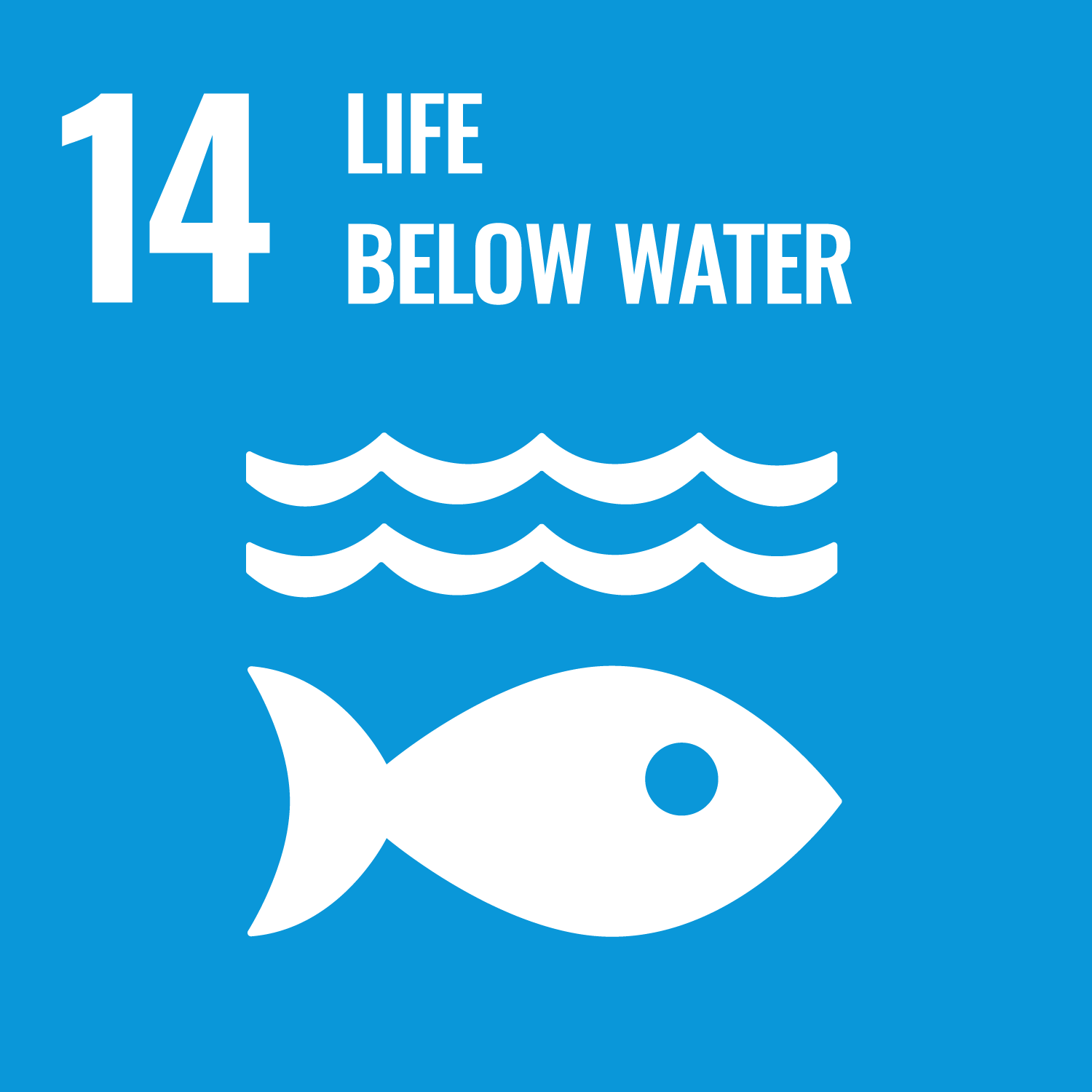
Teaching
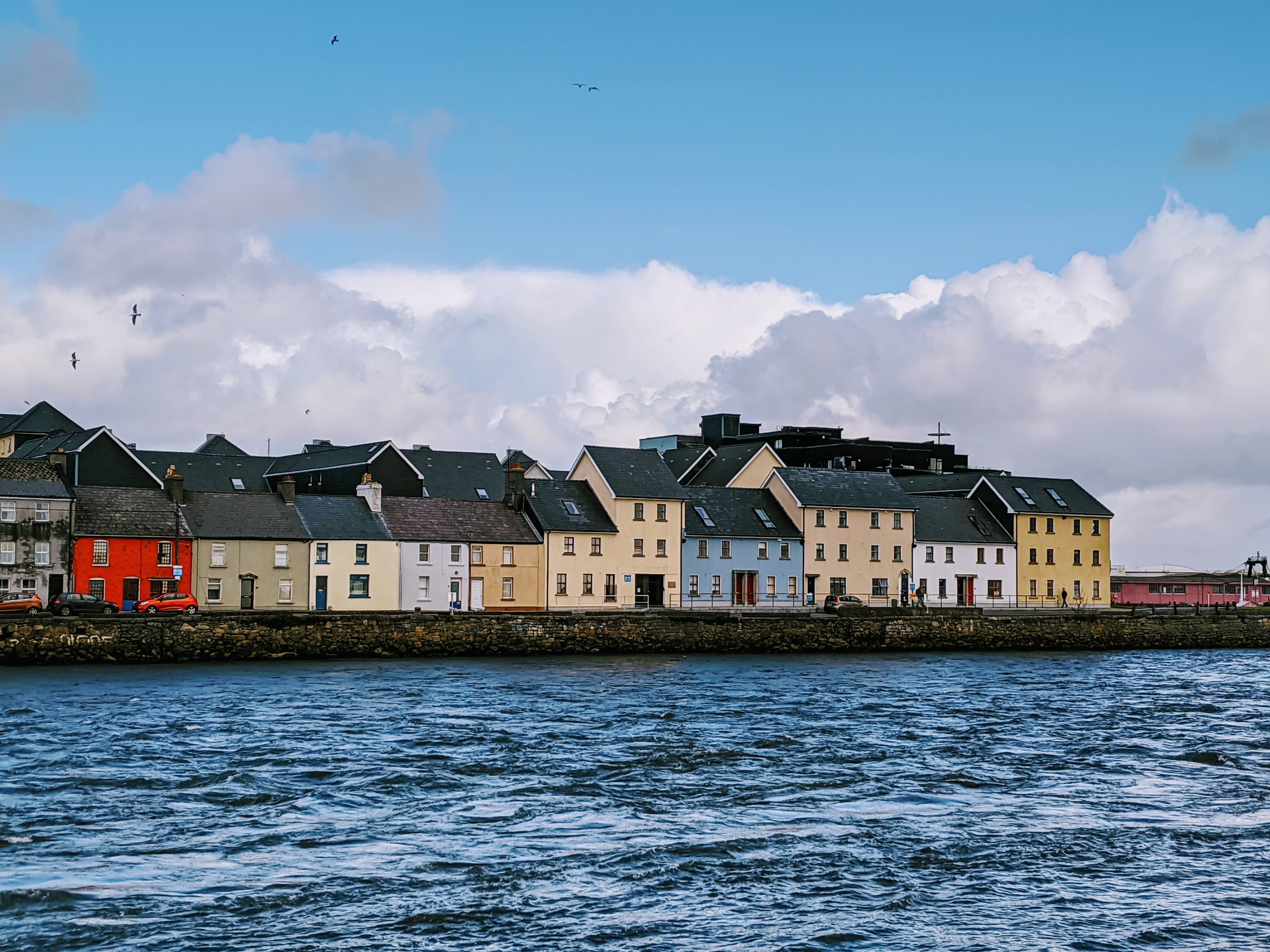
EC135: Principles of Microeconomics
Microeconomics studies how rational people makes choices in the face of scarcity and how these choices are coordinated by markets. We study how markets work to promote economic efficiency, and why markets sometimes fail. We explore the behaviour of consumers and producers in the market, and explain how interference in the market can lower economic surplus. Critical to the study of microeconomics is the role played by incentives. We will study how rational agents respond to incentives. The module will consider the appropriate role for government in the economy, the importance of competition in the market, and the behaviour of markets that exchange factors of production like labour. The aim throughout will be to introduce students to the “economic way of thinking”.
Focusing on Targets: 4.7 - Education for sustainable development and global citizenship and 12.C - Remove market distortions that encourage wasteful consumption
EC5145: The Economics of ESG (Environment, Social and Governance)
Environmental, Social, and Governance (ESG) issues are increasingly important in business and public policy. This module introduces economic perspectives on ESG, combining public, environmental, and financial economics. It begins by exploring market functions and how ESG problems arise from market failures, such as externalities. The course then examines policy solutions, including taxes, permits, and regulations, to address ESG challenges. It covers sustainability concepts and the complexities of valuing non-market ecosystem services and natural capital. The module also highlights the crucial role of financial markets in transitioning to a sustainable global economy, focusing on mobilizing capital for green and social investments.
Focusing on Targets: 5.5 - Ensure full participation in leadership and decision-makin; 5.C - Adopt and strengthen policies and enforceable legislation for gender equality; 6.4 - Increase water-use efficiency and ensure freshwater supplies; 7.2 - Increase global percentage of renewable energy; 8.7 - End modern slavery, trafficking and child labour; 8.8 - Protect labour rights and promote safe working environment; 9.4 - Upgrade all industries and infrastructures for sustainability; 10.5 - Improved regulation of global financial markets and institutions; 10.5 - Improved regulation of global financial markets and institutions; 12.2 - Sustainable management and use of natural resources; 12.4 - Responsible management of chemicals and waste; 12.6 - Encourage companies to adopt sustainable practices and sustainability reporting; 12.7 - Promote sustainable public procurement practices; 13.2 - Integrate climate change measures into policies and planning; 14.1 - Reduce marine pollution; 14.2 - Protect and restore ecosystems; 14.4 - Sustainable fishing; 15.2 - End deforestation and restore degraded forests; 15.5 - Protect biodiversity and natural habitats; 16.5 - Substantially reduce corruption and bribery; 16.6 - Develop effective, accountable and transparent institutions
EC5116: Global Issues in Agricultural, Marine and Renewable Energy Economics
This module applies economic theory and models to understand and evaluate a wide range of problems and issues related to agriculture, marine and renewable energy. This course focuses on contemporary issues and topics will vary from year to year. The course has a global emphasis using case studies and material from both developed and developing countries.
Focused onTargets: 4.7 - Education for sustainable development and global citizenship; 2.4 - Sustainable food production and resilient agricultural practices; 7.2 - Increase global percentage of renewable energy; 14.7 - Increase the economic benefits from sustainable use of marine resources
Engagement
In addition to his work on sustainable use of the marine, Daniel has also worked in other areas of sustainability that included direct engagement with stakeholders including the EPA funded INCASE project (measuring natural capital of Irish river catchments) and the SEAI funded HAVEN project (examining changes in air quality related to retrofitting of social housing).
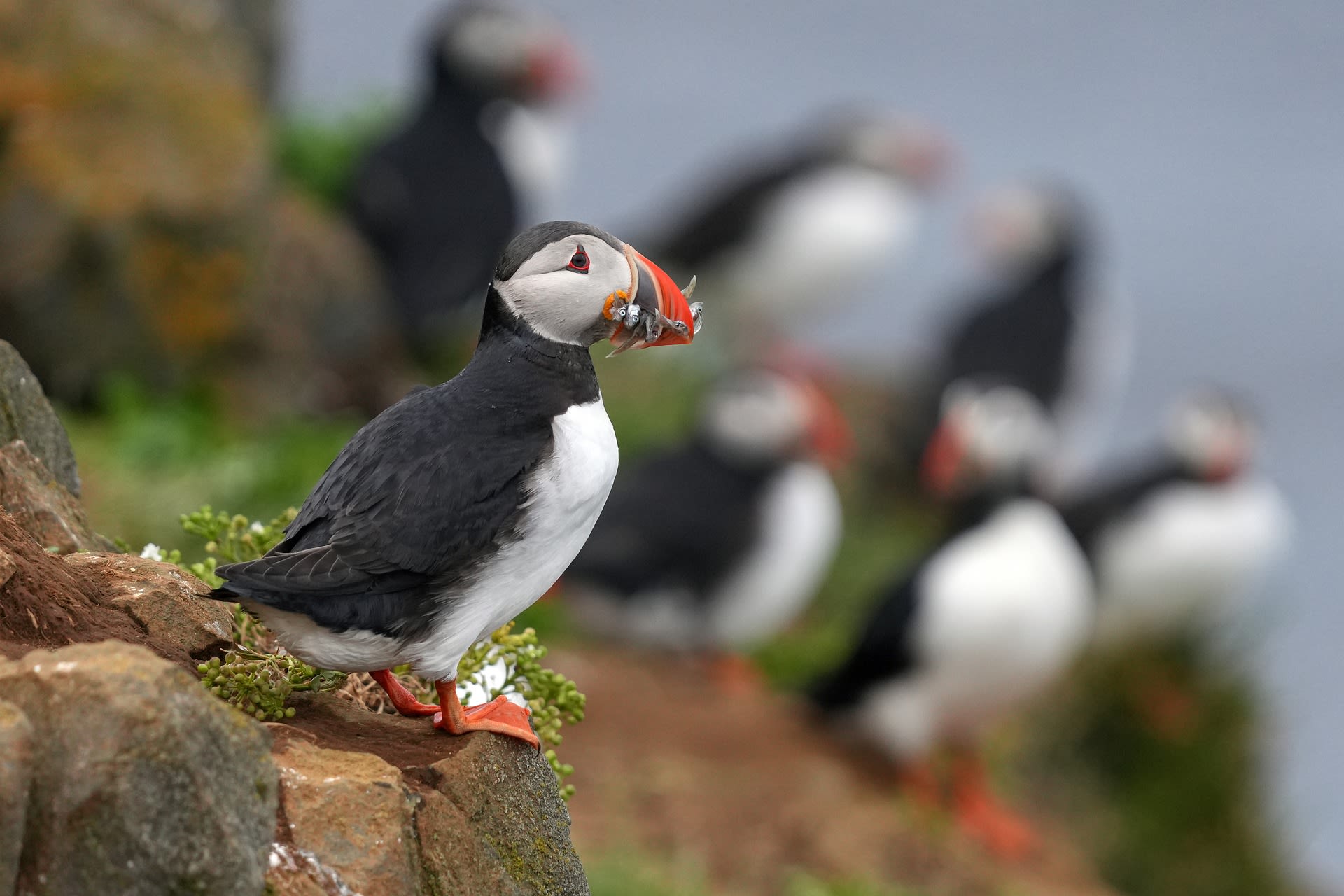
Direct impact SDG Targets
2.4 - Sustainable food production and resilient agricultural practices
4.7 - Education for sustainable development and global citizenship
14.A - Increase scientific knowledge, research and technology for ocean health
17.6 - Knowledge sharing and cooperation for access to science, technology and innovation
17.14 - Enhance policy coherence for sustainable development
17.18 - Enhance availability of reliable data
17.19 - Further develop measurements of progress
Indirect SDG Targets
1.4 - Equal rights to ownership, basic services, technology and economic resources
1.5 - Build resilience to environmental, economic and social disasters
2.1 - Universal access to safe and nutritious food
2.2 - End all forms of malnutrition
2.5 - Maintain the genetic diversity in food production
2.A - Invest in rural infrastructure, agricultural research, technology and gene banks
2.C - Ensure stable food commodity markets and timely access to information
3.9 - Reduce illnesses and death from hazardous chemicals and pollution
5.1 - End discrimination against women and girls
5.2 - End all violence against and exploitation of women and girls
5.5 - Ensure full participation in leadership and decision-making
5.A - Equal rights to economic resources, property ownership and financial services
5.C - Adopt and strengthen policies and enforceable legislation for gender equality
6.1 - Safe and affordable drinking water
6.2 - End open defecation and provide access to sanitation and hygiene
6.3 - Improve water quality, wastewater treatment and safe reuse
6.4 - Increase water-use efficiency and ensure freshwater supplies
6.5 - Implement integrated water resources management
6.6 - Protect and restore water-related ecosystems
6.B - Support local engagement in water and sanitation management
7.1 - Universal access to modern energy
7.2 - Increase global percentage of renewable energy
8.1 - Sustainable economic growth
8.2 - Diversify, innovate and upgrade for economic productivity
8.3 - Promote policies to support job creation and growing enterprises
8.4 - Improve resource efficiency in consumption and production
8.5 - Full employment and decent work with equal pay
8.7 - End modern slavery, trafficking and child labour
8.8 - Protect labour rights and promote safe working environment
8.9 - Promote beneficial and sustainable tourism
9.1 - Develop sustainable, resilient and inclusive infrastructures
9.2 - Promote inclusive and sustainable industrialization
9.4 - Upgrade all industries and infrastructures for sustainability
9.5 - Enhance research and upgrade industrial technologies
9.B - Support domestic technology development and industrial diversification
10.1 - Reduce income inequalities
10.2 - Promote universal social, economic and political inclusion
10.3 - Ensure equal opportunities and end discrimination
10.4 - Adopt fiscal and social policies that promotes equality
10.5 - Improved regulation of global financial markets and institutions
11.1 - Safe and affordable housing
11.2 - Affordable and sustainable transport systems
11.3 - Inclusive and sustainable urbanization
11.4 - Protect the world’s cultural and natural heritage
11.5 - Reduce the adverse effects of natural disasters
11.6 - Reduce the environmental impact of cities
11.7 - Provide access to safe and inclusive green and public spaces
11.A - Strong national and regional development planning
11.B - Implement policies for inclusion, resource efficiency and disaster risk reduction
11.C - Support least developed countries in sustainable and resilient building
12.1 - Implement the 10-year Sustainable Consumption and Production Framework
12.2 - Sustainable management and use of natural resources
12.4 - Responsible management of chemicals and waste
12.6 - Encourage companies to adopt sustainable practices and sustainability reporting
12.7 - Promote sustainable public procurement practices
12.B - Develop and implement tools to monitor sustainable tourism
12.C - Remove market distortions that encourage wasteful consumption
13.1 - Strengthen resilience and adaptive capacity to climate related disasters
13.2 - Integrate climate change measures into policies and planning
13.3 - Build knowledge and capacity to meet climate change
13.B - Promote mechanisms to raise capacity for planning and management
14.1 - Reduce marine pollution
14.2 - Protect and restore ecosystems
14.3 - Reduce ocean acidification
14.4 - Sustainable fishing
14.5 - Conserve coastal and marine areas
14.6 - End subsidies contributing to overfishing
14.7 - Increase the economic benefits from sustainable use of marine resources
14.B - Support small scale fishers
14.C - Implement and enforce international sea law
15.1 - Conserve and restore terrestrial and freshwater ecosystems
15.2 - End deforestation and restore degraded forests
15.4 - Ensure conservation of mountain ecosystems
15.5 - Protect biodiversity and natural habitats
15.6 - Promote access to genetic resources and fair sharing of the benefits
15.8 - Prevent invasive alien species on land and in water ecosystems
15.9 - Integrate ecosystem and biodiversity in governmental planning
15.A - Increase financial resources to conserve and sustainably use ecosystem and biodiversity
15.B - Finance and incentivize sustainable forest management
16.5 - Substantially reduce corruption and bribery
16.6 - Develop effective, accountable and transparent institutions
16.7 - Ensure responsive, inclusive and representative decision-making
16.10 - Ensure public access to information and protect fundamental freedoms
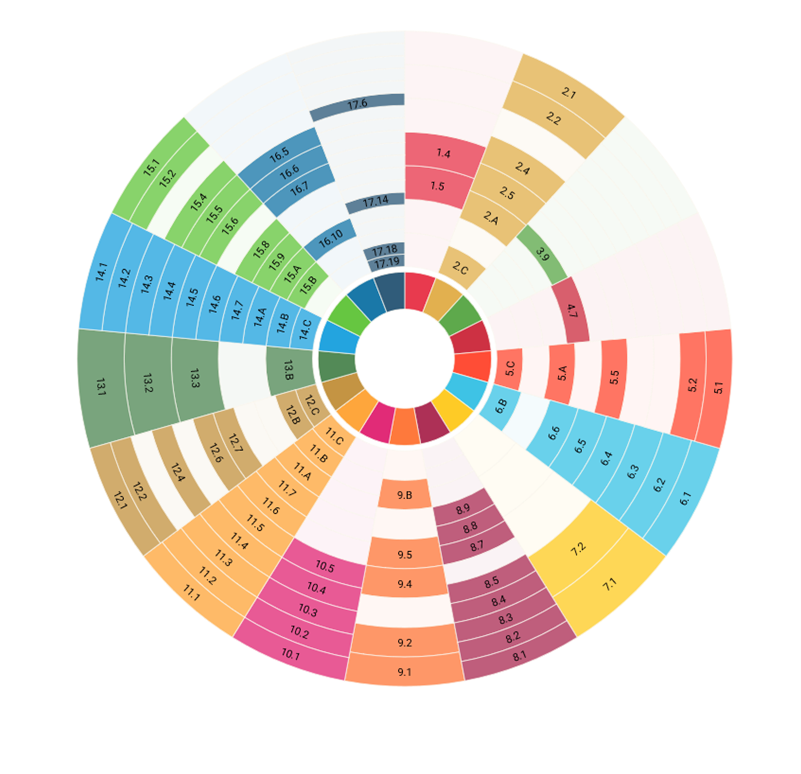
Research

Featured Publications
|
References |
SDGs |
|
Coggins, A.M., Hogan, V., Mishra, A.K., Norton, D., Foster, D., Wemken, N., Cowie, H. and Doherty, E., 2024. Energy retrofits: factors affecting a just transition to better indoor air quality. Indoor Environments, p.100058. Volume 1, Issue 4, December 2024 https://doi.org/10.1016/j.indenv.2024.100058 |
9.4, 11.1. 13, 5.7, 3.4 |
|
Doherty, E., Mellett, S., Norton, D. and 3 more (...) (2021). A discrete choice experiment exploring farmer preferences for insurance against extreme weather events. Journal of Environmental Management,290 |
SDG 2| SDG 13 |
|
Farrell, C.A., Coleman, L., Kelly-Quinn, M. and 7 more (...) (2021). Applying the system of environmental economic accounting-ecosystem accounting (Seea-ea) framework at catchment scale to develop ecosystem extent and condition accounts. One Ecosystem,6 |
SDG 6| SDG 8| SDG 12| SDG 15| SDG 16 |
|
Hynes, S., Burger, R., Tudella, J. and 2 more (...) (2022). Estimating the costs and benefits of protecting a coastal amenity from climate change-related hazards: Nature based solutions via oyster reef restoration versus grey infrastructure. Ecological Economics,194 |
SDG 11| SDG 13| SDG 14 |
|
Farrell, C.A., Coleman, L., Norton, D. and 8 more (...) (2022). Applying ecosystem accounting to develop a risk register for peatlands and inform restoration targets at catchment scale: a case study from the European region. Restoration Ecology,30(8) |
SDG 6| SDG 8| SDG 11| SDG 15 |
|
Farrell, C.A., Coleman, L., Norton, D. and 8 more (...) (2021). Developing peatland ecosystem accounts to guide targets for restoration. One Ecosystem,6 |
SDG 15 |
|
Kelly, C., McAteer, B., Fahy, F. and 2 more (...) (2021). Blue Growth: A Transitions Approach to Developing Sustainable Pathways. Journal of Ocean and Coastal Economics,8(2) |
SDG 14 |
|
Norton, D., Kalaydjian, R., Hynes, S. and 2 more (...) (2021). Challenges in measuring indicators of progress for the Atlantic Action Plan. Journal of Ocean and Coastal Economics,8(2) |
SDG 14 |
|
Kyriazi, Z., de Almeida, L.R., Marhadour, A. and 8 more (...) (2023). Conceptualising Marine Biodiversity Mainstreaming as an Enabler of Regional Sustainable Blue Growth: The Case of the European Atlantic Area. Sustainability (Switzerland),15(24) |
SDG 6| SDG 7| SDG 8| SDG 12| SDG 13| SDG 14| SDG 15 |
|
Hynes, S., Cawley, M., Deely, J. and 1 more (...) (2024). Alternative approaches to measuring the value of tourism in marine and coastal areas in ocean economy accounting. Marine Policy,168 |
SDG 8| SDG 12| SDG 14| SDG 15 |
|
Brennan, R.B., Healy, M.G., Morrison, L. and 3 more (...) (2016). Management of landfill leachate: The legacy of European Union Directives. Waste Management,55355-363 |
SDG 6| SDG 11| SDG 12 |
|
Hynes, S., Norton, D., Corless, R. (2014). Investigating societal attitudes towards the marine environment of Ireland. Marine Policy,4757-65 |
SDG 14 |
|
Hynes, S., Ghermandi, A., Norton, D. and 1 more (...) (2018).Marine recreational ecosystem service value estimation: A meta-analysis with cultural considerations. Ecosystem Services,31410-419 |
SDG 11| SDG 15 |
|
Norton, D., Hynes, S. (2014).Valuing the non-market benefits arising from the implementation of the EU Marine Strategy Framework Directive. Ecosystem Services,1084-96 |
SDG 14| SDG 15 |
|
Norton, D., Hynes, S. (2018).Estimating the Benefits of the Marine Strategy Framework Directive in Atlantic Member States: A Spatial Value Transfer Approach. Ecological Economics,15182-94 |
SDG 14| SDG 15 |



